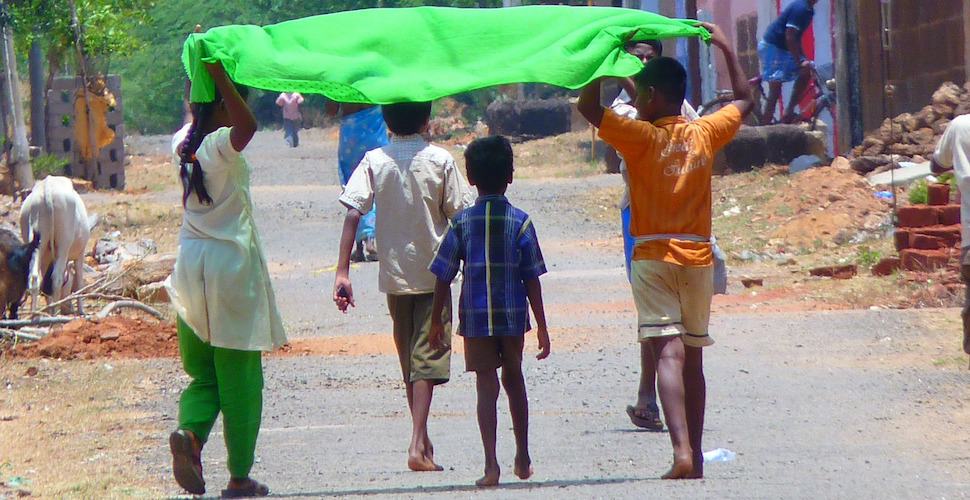In a moving video report last week, the BBC revealed the staggering extent of India’s nationwide child trafficking network—a trade partly responsible for the disappearance of a shocking one child every eight minutes.
Seventy thousand children are officially reported missing every year in India but, with many cases unregistered, the number is estimated to be much higher.
Many of these children are trafficked from poor, remote parts of the country and taken to cities, where they are trapped in forced labor, sexual exploitation, and domestic slavery.
The video report follows the BBC’s Rajini Vaidyanathan as she travels with local activist Poonam Toppo to Jarro, a village of 20 families in the poor eastern state of Jharkand where 14 children are currently missing.
There, she meets Amrita (not her real name), a girl who was sold into trafficking at age nine by a family member and forced to work in slavery-like conditions for five years. Family involvement in the child trafficking trade is sadly not uncommon.
“They took me after speaking to my paternal uncle. We were living in complete poverty. That is why I was sent away. I am the eldest sister and that is why I had to go. There was no food to eat so I was sent away.”
With Toppo’s assistance, a criminal investigation was launched and eventually resulted in the imprisonment of Amrita’s uncle. But with less than one percent of trafficking cases in India resulting in conviction, such victories are rare.
Vaidyanathan goes on to speak with Munsi and Suggi, village parents who were tricked into giving their daughter away by traffickers who promised to educate her.
Suggi, Sunita’s mother, weeps as she discusses her missing daughter whom she has not seen in a decade.
“She’s our first daughter and I’m very worried. I don’t know whether I will every see her again. I worry, but what can I do? Where can I go to search for her? I can’t even read. I miss her very much; I have grown old thinking of her. But what could I do? We weren’t able to feed her ourselves.”
With traffickers earning up to $300 per child, the child trafficking trade in India is lucrative and—despite some efforts by the government to fight it—thriving across the country.
Towards the end of the video, Toppo explains in detail the mechanism by which girls are trafficked.
“The girls are made to believe that they will be safe and they can earn money for their family. So she leaves the village with people she knows, but once she reaches the station the people change.
“In Delhi other people take her and she is taken to a placement agency where she is presented like cattle for the employer to select. Then their wages are negotiated and they are sent to work as nannies, domestic help, or to a brothel. Once the girl leaves there she is never found.”
Freedom United has since 2014 been campaigning to stop human trafficking from West Bengal, another eastern Indian state that borders Jharkand and is considered the country’s human trafficking hotspot.
Stand with vulnerable children like Amrita and Sunita and add your name today.







Freedom United is interested in hearing from our community and welcomes relevant, informed comments, advice, and insights that advance the conversation around our campaigns and advocacy. We value inclusivity and respect within our community. To be approved, your comments should be civil.
Le pido a Dios que es el dueño de todo que haga justicia por todos esos niños y los niños de todos los países que se encuentren en medio de tanta atrocidad ,que Dios envíe a todo su ejército y acampe sobre cada niño .